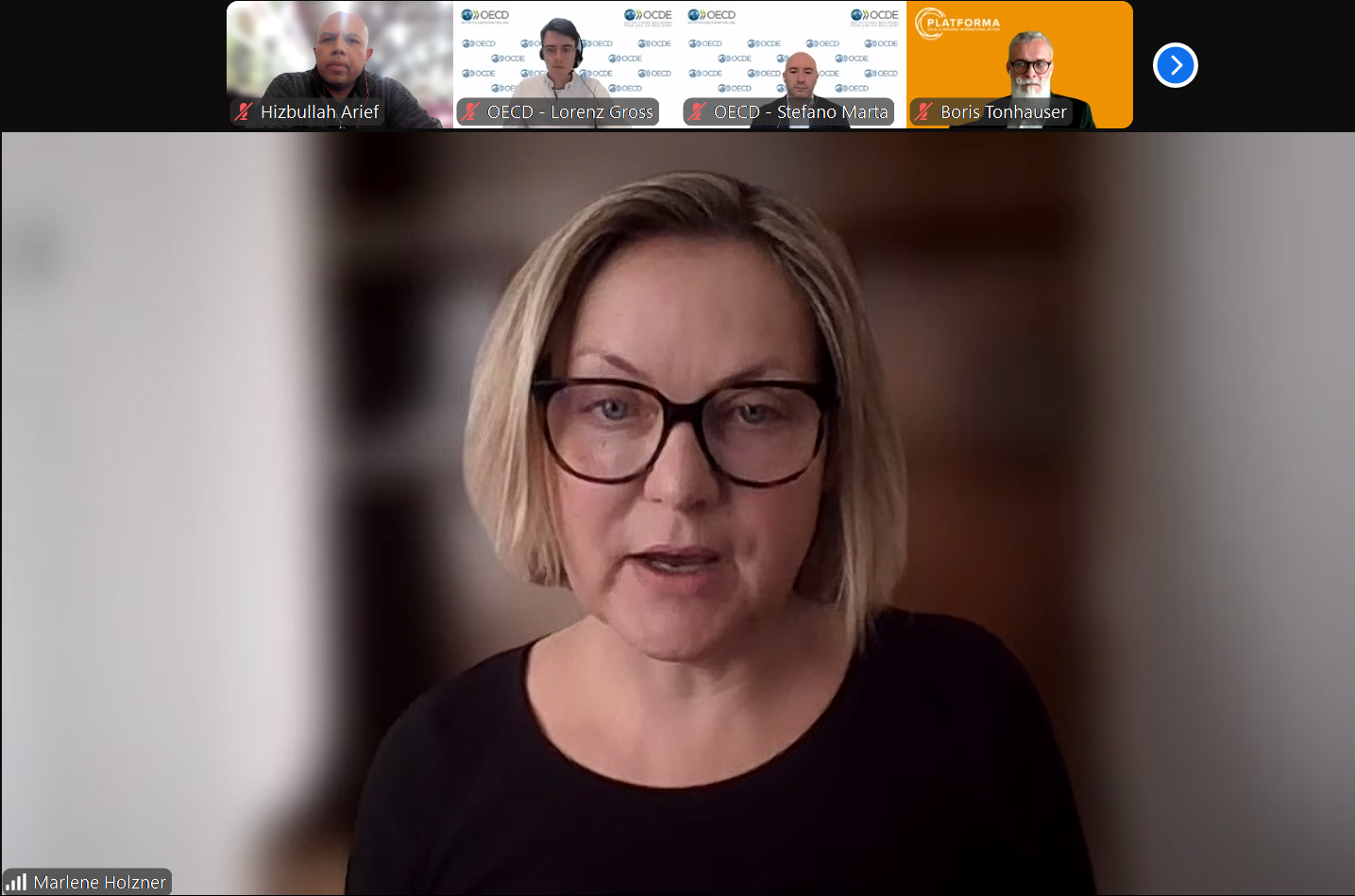Written by: Hizbullah Arief
These two most pressing issues: waste management and climate change are also the policy areas most often targeted by city-to-city partnerships.
Waste management and climate change are municipalities' main urban challenges. Eighty-six per cent (86%) of municipalities mentioned waste management as one of the key sustainable urban development challenges, followed by climate change (73%). Another 50% of respondents named infrastructure and poverty & inequality as key sustainable urban development challenges. On the other hand, issues such as energy, gender, and food security were less frequently reported.
The findings came from the recent survey commissioned by the Organisation for Economic Co-operation and Development (OECD), Centre of Entrepreneurship, SMEs, Regions and Cities that was presented by Lorenz Gross, Economist & Policy Analyst, during an online OECD workshop on 20 September 2024.

The half-day discussion and workshop, themed “The role of city-to-city partnerships to mobilise public and private investments for sustainable urban development,” was opened by Marlene Holzner, Head of Unit for Civil Society, Local Authorities and Foundation in the DG INTPA (EU Commission).
The OECD survey was organised between 18 June 2024 and 11 September 2024 and aimed at analysing the role of city-to-city partnerships to mobilise public and private investments for sustainable urban development.
Overall, OECD received twenty-eight (28) responses out of 57 city-to-city partnerships supported by the European Commission where twelve (12) responses came from EU partners and sixteen (16) responses from partners in the Global South.
The survey found that investment priorities are closely aligned with sustainable urban development challenges.. 68% of municipalities named waste management as a key investment priority, closely followed by climate resilience (64%). Three of the European Union’s Global Gateway key priorities also ranked among the top five investment priorities of the surveyed municipalities.
The Global Gateway, a new European strategy, stands for sustainable and trusted connections that work for people and the planet. It helps to tackle the most pressing global challenges, from fighting climate change to improving health systems, while boosting the competitiveness and security of global supply chains.
The European Commission and the EU High Representative have set out the Global Gateway to boost smart, clean and secure links in digital, energy and transport sectors and to strengthen health, education and research systems across the world.
OECD survey also detailed major challenges to securing public investments. OECD survey names at least four major challenges. They are bureaucratic hurdles, including complex and time-consuming administrative procedures; limited awareness and inadequate understanding of the benefit or sustainable urban development by public investors; frequent changes in government policies or leadership and resistance from local communities or stakeholders against urban development projects.
When it comes to securing private investments for sustainable urban development, the survey acknowledges five major challenges faced by cities: high-project risks or uncertain returns; limited capacity to develop attractive investment proposals; difficulty in aligning projects with investors' interest; complex regulatory environments; and lack of interest from private investors.
The survey suggests that strengthening capacities in project management and financial planning is the most common strategy (82%) to address the lack of financial resources for sustainable urban development. The second strategy is to simplify regulatory procedures for project approval including but not limited to forming alliances with financial institutions.
Additionally, many municipalities are lobbying for increased funding from national and international bodies (71%) and engaging in strategic planning with their partners (68%) to address the gaps between flows of urban finance and financial needs..
On a positive note, the policy areas of climate change (76%), and waste management (68%) were the most frequently targeted through city-to-city partnerships, according to the survey. The benefits of these partnerships also prevail from the OECD survey. For example, more than 80% of municipalities reported that their C2C partnerships helped mobilise investment for sustainable urban development.
Furthermore, peer-to-peer learning (86%) and improved local governance (79%) are the two main tools and outcomes which help mobilise resources through city-to-city partnerships. Finally, these partnerships also increase advocacy power (71%) and enhance credibility and effectiveness to investors.
--##--
Hizbullah Arief is Project Manager of Climate Resilient and Inclusive Cities

